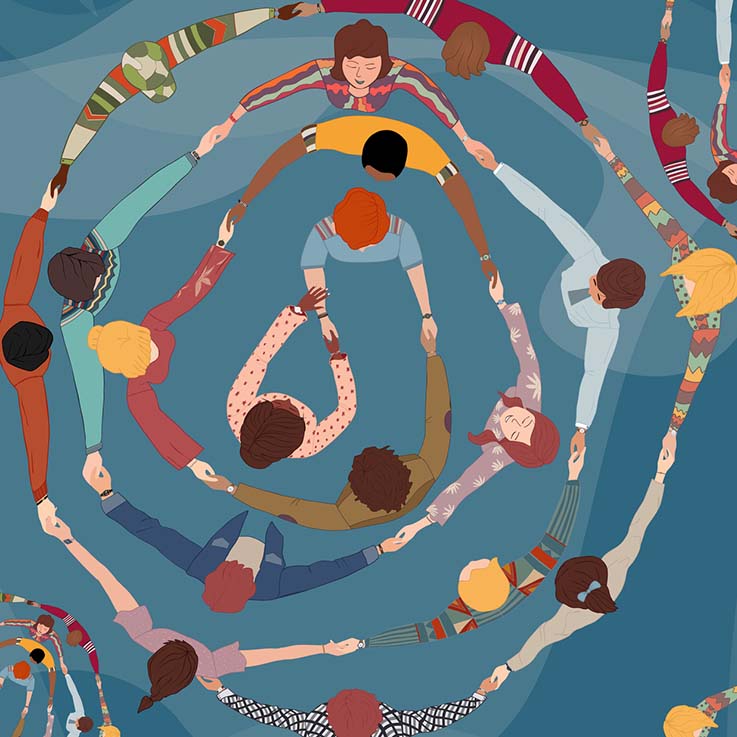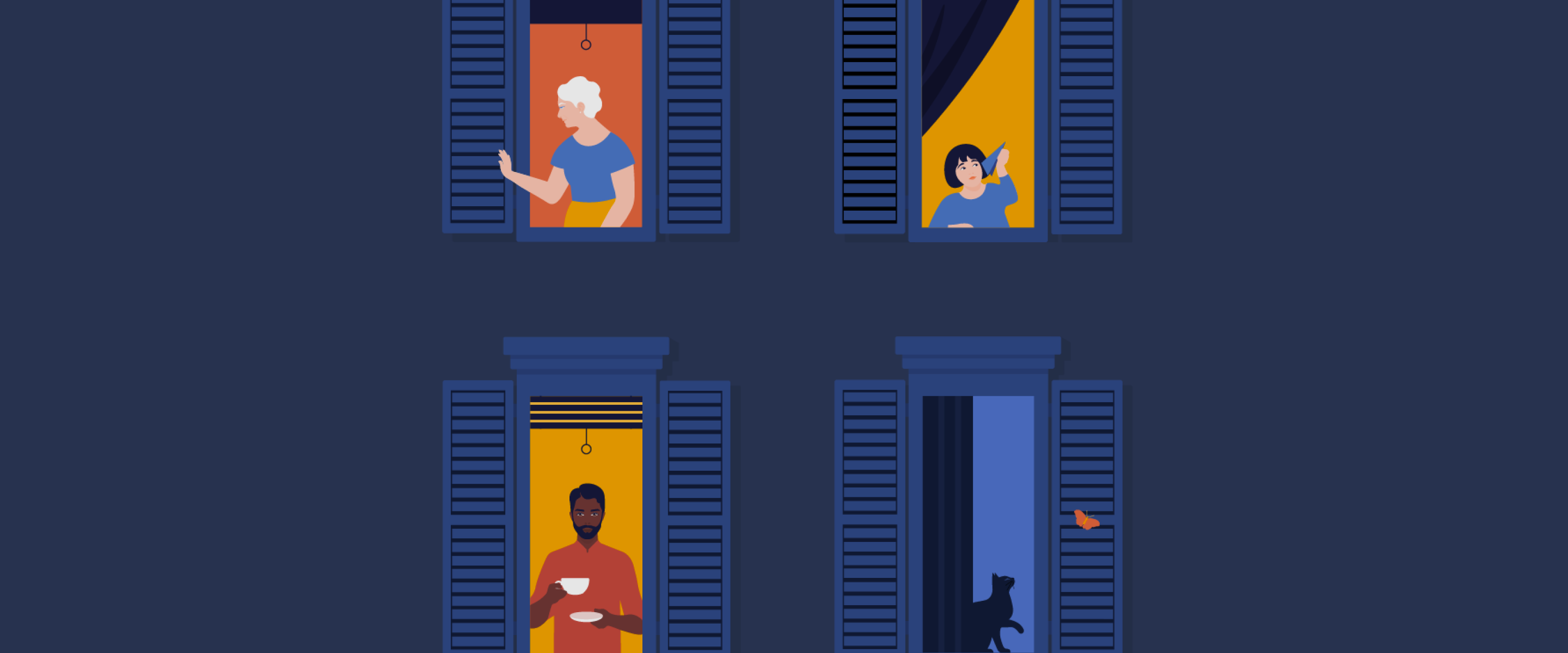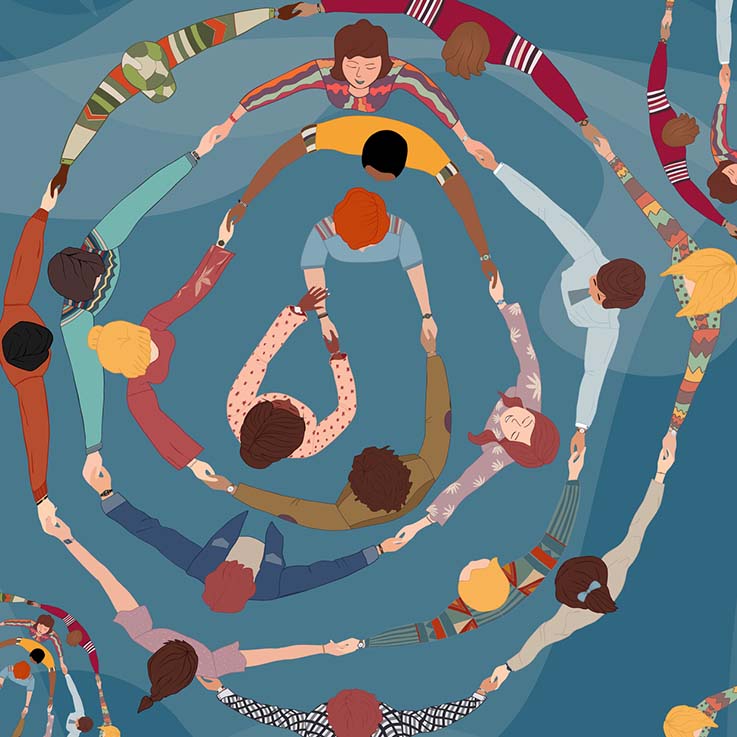Introduction
Once upon a time, the rhythm of life was marked by rituals — small and grand. A handshake before meetings, Sunday family dinners, lighting candles during power outages. These weren’t just traditions; they were threads that wove us into communities. But as our world becomes more digital, individualized, and fast-paced, we’re witnessing the loss of shared rituals — and with it, a slow unraveling of our social fabric.
Rituals give shape to our lives. Without them, connection weakens, identity blurs, and loneliness takes root. This growing absence is more than nostalgia; it’s a crisis of social fragmentation — and it’s happening right now.
“The more rituals disappear, the more people feel invisible.”
In this article by Remin.site, where we help you preserve your memories and meanings, we’ll explore what shared rituals are, why they matter, and how their erosion impacts our communities, relationships, and sense of self.
What Are Shared Rituals?
Shared rituals are repeated, symbolic actions performed by a group. They range from formal events like weddings and graduations to everyday acts like communal meals or morning greetings at work. What makes them powerful is their collective nature — they are done with others, often for a shared purpose.
According to French sociologist Émile Durkheim, rituals reinforce collective identity by connecting individuals to something larger than themselves. Whether religious, cultural, or secular, they serve to:
- Mark transitions (births, deaths, promotions)
- Reinforce values and belonging
- Bring emotional resonance to ordinary life
Think of how birthdays, national holidays, or even Friday night pizza build shared meaning. These aren’t just habits — they’re bonding agents.
The Societal Function of Rituals
Rituals are far more than tradition — they are social glue. They bind us through emotion, structure, and repetition. From indigenous fire dances to modern graduation ceremonies, rituals offer:
- Emotional Synchrony: By engaging in the same actions, people feel aligned — psychologically and emotionally.
- Group Cohesion: Rituals demarcate who belongs, creating a safe container for community.
- Transmission of Values: Through repetition, cultural stories and moral frameworks are passed across generations.
A study from the Academy of Management Journal found that team rituals improve collaboration, trust, and psychological safety — even in organizations. Rituals foster not just culture but resilience.

“Rituals are not outdated relics. They’re systems of healing, identity, and meaning.”
Reasons Behind the Decline of Rituals
The disappearance of rituals isn’t accidental. It reflects deeper shifts in how we live, work, and relate.
1. Digital Transformation
With screens mediating most of our interactions, embodied rituals are replaced by asynchronous exchanges. A Zoom birthday isn’t the same as blowing out candles with friends in person. The emotional resonance is diluted.
2. Globalization and Cultural Homogenization
As cultures blend or clash, local and ancestral traditions are often sacrificed for convenience. Global trends override local rhythms — think Halloween in Asia or the fading of indigenous ceremonies.
3. Rise of Individualism
Modern society increasingly champions autonomy and self-expression. While empowering, this also sidelines collective rituals, which require people to participate in shared experiences that may not center the individual.
4. Urbanization and Displacement
People are moving more than ever. With migration — both domestic and international — comes disconnection from communal roots, local holidays, and familiar rituals.
Visual Representation of Ritual Loss
As seen in the chart below from a SAGE research study, the frequency of communal rituals has declined significantly in recent decades, particularly after the 2000s.

This visual reinforces what many feel intuitively — that shared experiences are becoming fewer and more superficial.
Consequences of Losing Shared Rituals
When we lose rituals, we lose much more than tradition — we lose connection, purpose, and community. The consequences are visible everywhere:
- Social Fragmentation: Groups become more divided, isolated, and distrustful of “others.”
- Loneliness Epidemic: Without rituals, people lack consistent opportunities for bonding and presence.
- Rise in Polarization: Without shared frameworks, we’re more vulnerable to echo chambers and extremism.
In many ways, rituals acted as society’s immune system — preventing division by creating unity. Without them, the social body grows weaker.

“It’s not just what we’ve lost — it’s who we’re becoming without them.”
In the second half of this article, we’ll explore how we can rebuild what’s been lost — and even reinvent rituals for modern life, from remote workspaces to digital memorials. At Remin, we believe memory is sacred, and ritual is its keeper.
Rituals in the Workplace and Remote Culture
It’s not just society at large that suffers from the loss of shared rituals — workplaces are also feeling the cracks. In the pre-remote era, rituals like coffee chats, onboarding lunches, and Friday team huddles created rhythm and cohesion. They gave employees a sense of belonging beyond the job description.
Today, with hybrid or fully remote workforces, those unspoken routines are harder to maintain. And yet, studies like those from Academy of Management Journal show that even small rituals — like a team’s shared emoji reaction during virtual meetings — can boost engagement and emotional safety.
How Teams Are Reimagining Rituals
- Virtual Celebrations: Monthly “wins and gratitude” meetings where achievements are honored.
- Digital Memorials: Internal boards for remembering colleagues, life events, or shared stories.
- Ritualized Breaks: Group lunch hours or screen-free “deep work” blocks to create structure together.
Ritual doesn’t need to be grand. It just needs to be intentional. And that’s where platforms like Remin.site can help — by providing the tools and digital space to record, revisit, and renew meaning.
Rebuilding Community Through Ritual
Though much has been lost, not all is gone. Across the world, people are reclaiming rituals — not by going back, but by creating anew. Modern rituals are emerging, rooted in inclusion, accessibility, and emotional relevance.
Where New Rituals Are Taking Root
- Digital Memorials: Platforms like Remin provide a sacred space to archive stories, values, and farewell messages for future generations.
- Community-Based Events: From neighborhood potlucks to candlelight vigils, communities are carving out space for shared meaning.
- Hybrid Celebrations: Festivals like Diwali or Lunar New Year are now celebrated in-person and online, allowing diaspora communities to reconnect.
One powerful example is the rise of ritual design labs — where anthropologists, artists, and therapists come together to craft new symbolic practices for modern life.
“We don’t need to return to the past to feel connected — we can ritualize the present.”
Examples of Successful Ritual Reinvention
Hybrid Holidays
Take the example of Passover Seder over Zoom, which gained traction during the pandemic. While different from traditional formats, it enabled dispersed families to reconnect across continents.
Micro-Rituals at Home
Parents now create bedtime rituals rooted in mindfulness or storytelling, helping children feel grounded in an otherwise chaotic world. Even lighting a candle before dinner has become a symbolic pause, a moment of shared presence.
Virtual Legacies
At Remin, users can create memory timelines, record voice messages, and leave instructions for future generations. It’s not just data preservation — it’s ritualized remembrance.
Conclusion: Why Rituals Matter More Than Ever
In a world splintered by speed, distraction, and disconnection, rituals offer a slow, sacred counterweight. The loss of shared rituals has not only deepened social fragmentation, but also dimmed our sense of who we are — together.
But there’s hope. We can remake meaning. We can revive what grounds us. Whether through ancient customs or newly born traditions, ritual is how we remember who we are and how we belong.
At Remin.site, we believe that death is not the end — it is the beginning. And ritual is the bridge that lets our memories, values, and presence endure beyond the present moment.
“We do not inherit rituals — we create them together.”
Frequently Asked Questions (FAQs)
1. What are some examples of modern shared rituals?
These include virtual holiday gatherings, group meditations, workplace ceremonies, and digital memorials. Even recurring community Zoom calls can become ritualized if done with intention and care.
2. Why are rituals still important in the digital age?
Rituals bring emotional presence and structure to a world of distraction. They help people stay anchored in identity and community, especially during transitions and uncertainty.
3. Can rituals be created for online teams or remote families?
Absolutely. Small gestures — like shared playlists, emoji check-ins, or scheduled video calls — can become meaningful rituals when consistently practiced.
4. Are rituals always tied to religion?
No. While many originated in spiritual traditions, rituals can be entirely secular — think of clinking glasses for a toast, singing “Happy Birthday,” or group stretching before a run.
5. How does Remin help preserve or create new rituals?
Remin.site allows individuals and families to build memory archives, share life lessons, and pass on legacy content. These intentional acts become rituals in themselves — ways of remembering, recording, and reconnecting across time.
To explore how you can preserve your own memories and rituals for future generations, visit Remin.site — where your story is never forgotten.
